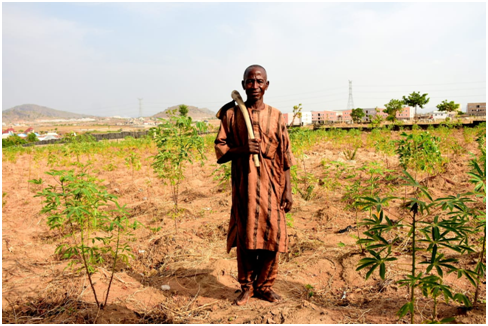In a world grappling with the challenges of a growing population, climate uncertainties and resource constraints, the specter of food scarcity looms large. Food scarcity is a complex challenge that demands holistic solutions. By addressing the root causes, embracing sustainable practices and fostering global collaboration, we can work towards a future where access to nutritious food is a reality for all. Recognizing the interconnectedness of environmental, social, and economic factors is key to navigating the path towards a more food-secure world.
‘’Food scarcity demands our attention, not just in times of crisis, but as a constant call to build resilient food systems, nurture innovation, and ensure a future where hunger is inconceivable.’’

Neighborhoods with higher unemployment rates, lower rates of high school graduation, more female headed households, and more linguistically isolated residents. After understanding the causes of hunger and food insecurity, the second key building block for better policy is proving the multiple individual, community and economic harms that flow from that deprivation. We need to show that solving the hunger problem is essential because the damage is so great. Maternal undernutrition increases the risk of certain birth defects and contributes to low infant birthweight.
Food insecurity among very young children can cause iron deficiency anemia and delayed cognitive development. Food insecurity harms children’s physical growth and immune systems, and causes weakened resistance to infection. This means that in both early childhood and the school years children lag behind their peers and learn less; these learning deficits accumulate.
Over 50% of the worlds crops are grown to feed livestock. Imagine if 50% more of the crops grown were used to feed humans directly, with no animals in the middle. This article explores impactful strategies and solutions to nurture a sustainable future, addressing the root causes of food scarcity and how Cozance is planning playing a role to win the battle against food scarcity in Nigeria by:
1. Sustainable Agriculture: Cultivating Resilience
Embrace and promote sustainable farming practices that prioritize soil health, biodiversity, and reduced environmental impact. Explore methods such as organic farming, agroforestry, and regenerative agriculture for a more resilient food production system.
2. Technological Innovations:
Harness the power of technology in agriculture. From precision farming and drone-assisted monitoring to advanced irrigation systems, technology can optimize resource use, improve yields, and mitigate the impact of climate change.
3. Empowering Farmers Through Education
Empower farmers with knowledge and skills. Training programs on modern farming techniques, crop rotation, and water conservation not only enhance productivity but also build a more sustainable farming community.
4. Diversification for Stability
Encourage crop diversification to reduce vulnerability to environmental changes and market fluctuations. A diverse range of crops can enhance ecosystem resilience and ensure food security in the face of uncertainties.
5. Urban Agriculture and Community Gardens
Promote community engagement in agriculture through urban farming initiatives and community gardens. These not only provide fresh produce but also foster a sense of community and shared responsibility for sustainable food practices.
6. Water Management for Sustainable Harvests
They establish effective feedback channels, listening to the needs and concerns of the community. This two-way communication enables administrators to tailor technological solutions to the specific requirements of the farmers.
7. Government Policies and Support
Advocate for policies that support sustainable agriculture. Governments play a crucial role in providing incentives for eco-friendly farming practices, subsidizing modern equipment, and investing in agricultural research and development.
8. Global Collaboration
Recognize that food scarcity is a global challenge requiring international collaboration. Collaborate with global organizations, NGOs and other nations to share knowledge, resources, and best practices agriculture similar concentrations of food insecurity

